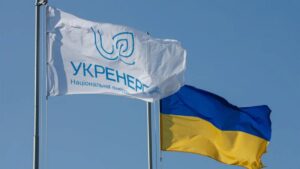
The 2026 state budget provides for UAH 298.8 billion in funding for the Ministry of Education and Science of Ukraine.
“The Verkhovna Rada of Ukraine has approved the state budget for 2026. The document provides for a significant expansion of investment in human capital: UAH 298.8 billion is allocated for education and science, which is UAH 85.4 billion more than in 2025,” the Ministry of Education said in a statement.
Key areas of funding include: education — UAH 278.7 billion (+UAH 79.8 billion by 2025); educational infrastructure and investment projects — UAH 17 billion, including UAH 6.2 billion for shelters in schools and kindergartens; free school meals — UAH 14.4 billion to provide meals for 3.5 million students in grades 1–11; textbooks — UAH 2.1 billion is allocated for the purchase of textbooks for grades 4 and 9; scholarships for students — UAH 6.6 billion.
It is also planned to allocate UAH 19.9 billion to science, in particular, almost UAH 3 billion for basic funding of universities and scientific institutions based on the results of state certification; UAH 998 million for research centers of advanced experience; UAH 100 million for a new competition for applied developments in partnership with business; UAH 300 million for competitive research.
“Education and science remain among the key priorities of the state in 2026. The increase in funding demonstrates that Ukraine is consistently investing in human potential, technological strength, and future sustainability — the foundation of our victory and development,” the ministry emphasized.
As reported, the 2024 state budget allocated UAH 171.2 billion to finance education, while the 2025 state budget allocates UAH 197.3 billion to finance education.

Deputy Head of the Department for Financial Technologies, Digitalization and Artificial Intelligence of the Presidential Administration of Uzbekistan Hikmatilla Ubaidullaev said that the first working meeting with OpenAI representatives was held. Valerie Fokke, Dips Patel, Shaig Ali, and Carlotta Serrano, Heads of Education and Partnerships, participated in the meeting.
The main topic of the talks was the introduction of ChatGPT EDU platform for teachers and students. This tool will allow using powerful OpenAI language models in a secure environment, creating personalized learning materials and own AI assistants.
The parties paid special attention to personalized learning, where artificial intelligence helps to adapt the educational process to the individual characteristics of each student, such as their pace, level of knowledge, and interests. Such a system will allow teachers to quickly identify gaps, create individualized assignments, automate work checking, and reduce bureaucratic procedures.
It was agreed that OpenAI will not create a separate program but will join the national initiative 1 Million AI Leaders, supplementing it with its own courses and expertise. This will allow Uzbek schoolchildren, students, and teachers to master artificial intelligence technologies at the level of world standards.
A separate area of discussion was the support of local startups. OpenAI expressed its readiness to consider providing preferential access to APIs and loans, as well as participation in hackathons and acceleration programs in Uzbekistan. This will create additional opportunities for young teams developing their own AI products in education and business.
The Uzbek side also presented plans to create a GPU cluster and an Uzbek-language data corpus for localization and adaptation of AI models. OpenAI representatives noted that their systems already demonstrate a high level of understanding of the Uzbek language and expressed interest in further cooperation in this area.
Following the meeting, the parties agreed to prepare a roadmap for cooperation in three key areas:
1) implementation of ChatGPT EDU at universities;
2) development of mass AI education;
3) support for startups and hackathons.

KAN Development invested $120 million in education and the construction of educational institutions during the war, according to company founder Igor Nikonov.
“At KAN Development, we believe in the future and are building it today. We are creating self-sufficient ecosystems with everything you need: work, education, sports, medicine, security. During the war, we invested $120 million in education for children and are building schools of a new level,” Nikonov said on his Facebook page following his participation in the Kyiv International Economic Forum (KIEF).
As reported, KAN Development is investing $80 million in the construction of a school in the Respublika residential complex and a school on McCain Street in Kyiv. In total, the educational institutions are designed for 2,000 students.
In September 2024, the A+ architectural and engineering college also opened in the Faina Town residential district in the capital. It became the 15th educational institution in the A+ network.
KAN Development was founded in 2001. The company’s portfolio includes Ocean Plaza, Respublika Park, Tetris Hall, Central Park, Comfort Town, Faina Town, Respublika, IQ Business Center, and 101 Tower. In more than 20 years of operation, KAN Development has created over 3 million square meters of residential, retail, and commercial real estate. The company is also actively developing its own network of A+ educational institutions.

The current education system in Ukraine is hindering investment and business development and needs to be changed, according to Konstantin Efimenko, president of the pharmaceutical company Biofarma Plasma.
“In order for us to implement changes and invest $500 million over seven years, the education system needs to be fundamentally changed,” he said at the Kyiv International Economic Forum (KIEF) on Thursday.
Yefimenko noted the negative consequences for primary schools of online learning, which has been practiced in Ukraine for the past six years.
“That’s why we’ve completely lost the school system. Today, we’re getting kids with absolutely zero knowledge, and we need to understand that in order to understand where we are,” he said.
Yefimenko stressed the need to invest in education and review curricula.
“We need to change the education system, we need to remove all these lessons on happiness, some psychological lessons, and bring mathematics, chemistry, and biology back to school,” said the businessman and former Minister of Transport and Communications.
In addition, Yefimenko stressed the need to upgrade university teaching laboratories.
“I visited almost all the universities in Kyiv where chemistry and biology are taught. And I will say this: all their laboratories became obsolete 34 years ago. Everything there related to chemistry, biology, and physics should be collected and thrown away. The entire university base is worse than a single Biofarma laboratory, in which we invested $25 million. But let’s think about it: a peripheral company from Bila Tserkva has a better laboratory base than all universities, including national ones. How can this be acceptable?” he said.
Yefimenko noted the high demand for qualified personnel: “We need people, but we can’t train them at the trolleybus stop. We need to buy chromatographs, we need to buy cytometers, we need to find equipment and connect it. And we don’t have that.”
“We have created two schools because we understand that there is no school education. We have created our own department at Shevchenko University. There are now 15 children studying there. I find the teachers myself and pay them myself, which costs more than $1 million a year. We are now publishing textbooks. The only thing more important than this is what is happening on the front line,” he said.

Ukrenergo’s contribution to the development of educational initiatives in 2022-2025 amounted to over UAH 65 million, the system operator announced on its Telegram channel on Monday.
“Our company actively cooperates with many higher and pre-higher education institutions. In particular, these are the Igor Sikorsky Kyiv Polytechnic Institute, Dnipro and Lviv Polytechnic Institutes, Vinnytsia National Technical University, and Kharkiv National Technical University of Municipal Economy named after O. Beketov,” the company said.
Together with these and other universities, Ukrenergo is improving its training programs for energy specialists in various fields and provides university teachers with opportunities for practical training at production facilities and in the company’s training center.
Ukrenergo also has an internship and employment program for senior students and graduates called Energy HUB.
“About 60% of participants in this program end up staying on to work full-time. Such initiatives help students start their careers immediately after graduation and help our company effectively build a qualified talent pool,” explained NEC.
Ukrenergo is among the largest business investors in Ukrainian education. The list of the top 51 companies that invest the most in education was compiled by Delo․ua and the Kyiv School of Economics.
The study took into account the volume of investments and educational initiatives of Ukrainian companies during 2022-2025. According to the organizers, this period was chosen for the ranking because investing in education during a full-scale war means believing in the future of both one’s own business and Ukraine as a whole.

The Architecture of Resilience Veterans Institute offers opportunities for:
Free education* in over 30 specialties and >100 educational programs
Retraining, courses, second higher education, master’s and postgraduate studies
Psychological support and rehabilitation
Participation in projects for the restoration of Ukraine
Partnership programs with employers (Axor, Barks, Google, Microsoft, Cisco, etc.)
Training formats: full-time, part-time, online.
We work with communities throughout Ukraine.
Individual support from admission to employment.
We invite everyone to online or offline meetings with our team. We will tell you:
▪️ how to apply
▪️ what benefits veterans and their children are entitled to
▪️ how to receive compensation for training
▪️ which educational programs are most relevant for reconstruction

Program details:
www.Veterano.info
Write to us or leave a request on the website:
+38 073 94 96 179
+38 050 22 35 182
+38 067 49 81 098
center@uvc.in.net
veterano@knuba.edu.ua
Head: Artem Goncharenko – +38 073 177 72 73
Let’s build the future together. Start with education today!
Partner universities:
• Kyiv National University of Construction and Architecture
• National University of Physical Education and Sports of Ukraine (NUPESU) — a key institution on the basis of which a training and rehabilitation center for veterans has been created.
• Western Ukrainian National University
• Yuri Kondratyuk Poltava Polytechnic National University
• Vasyl Stefanyk Precarpathian National University
• National University of Life and Environmental Sciences of Ukraine
• Drohobych National Pedagogical University
*“Free education” refers to participation in state compensation programs, grants, scholarships, and support from employers.
Important: admission during the basic admission campaign within the standard terms.